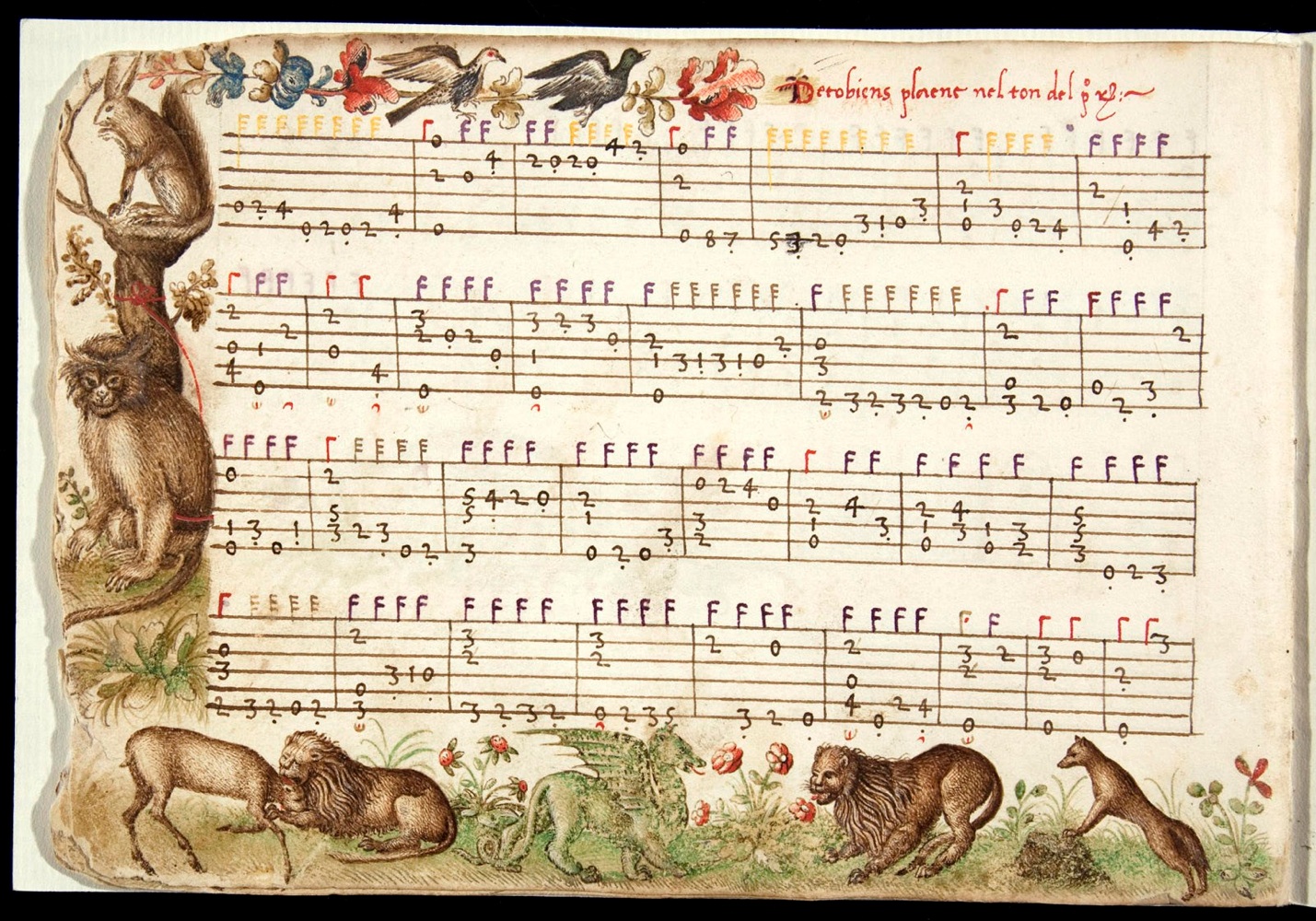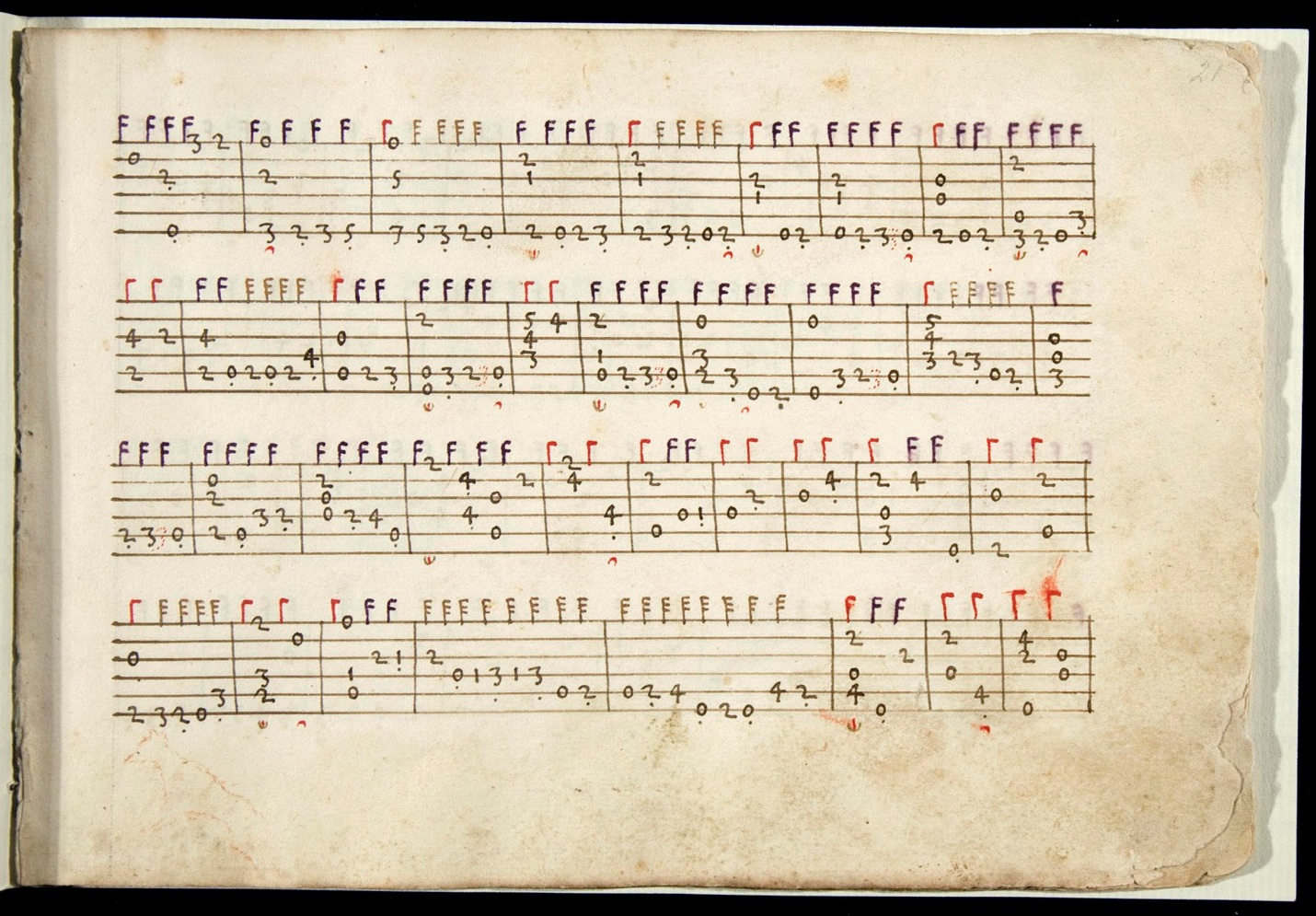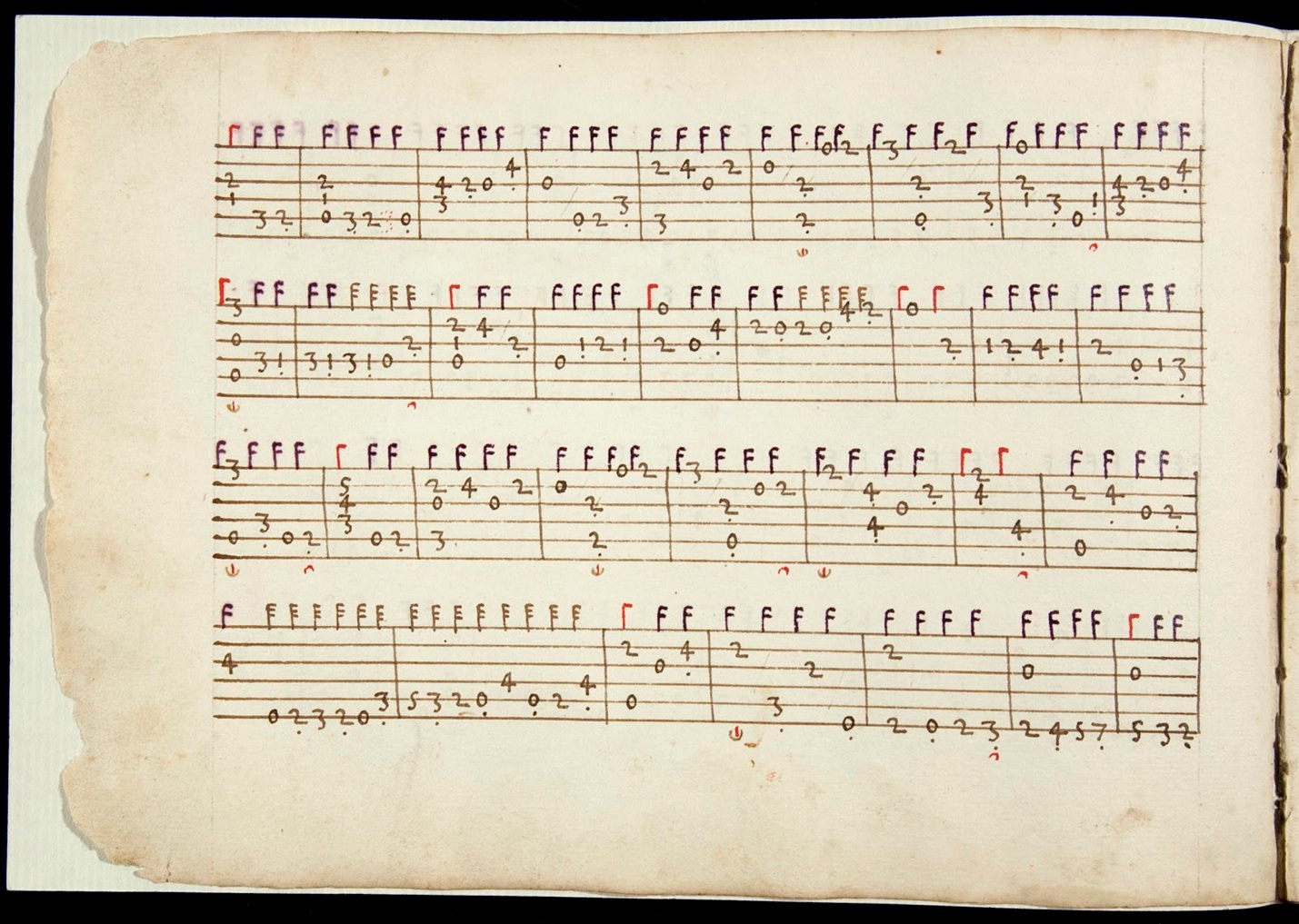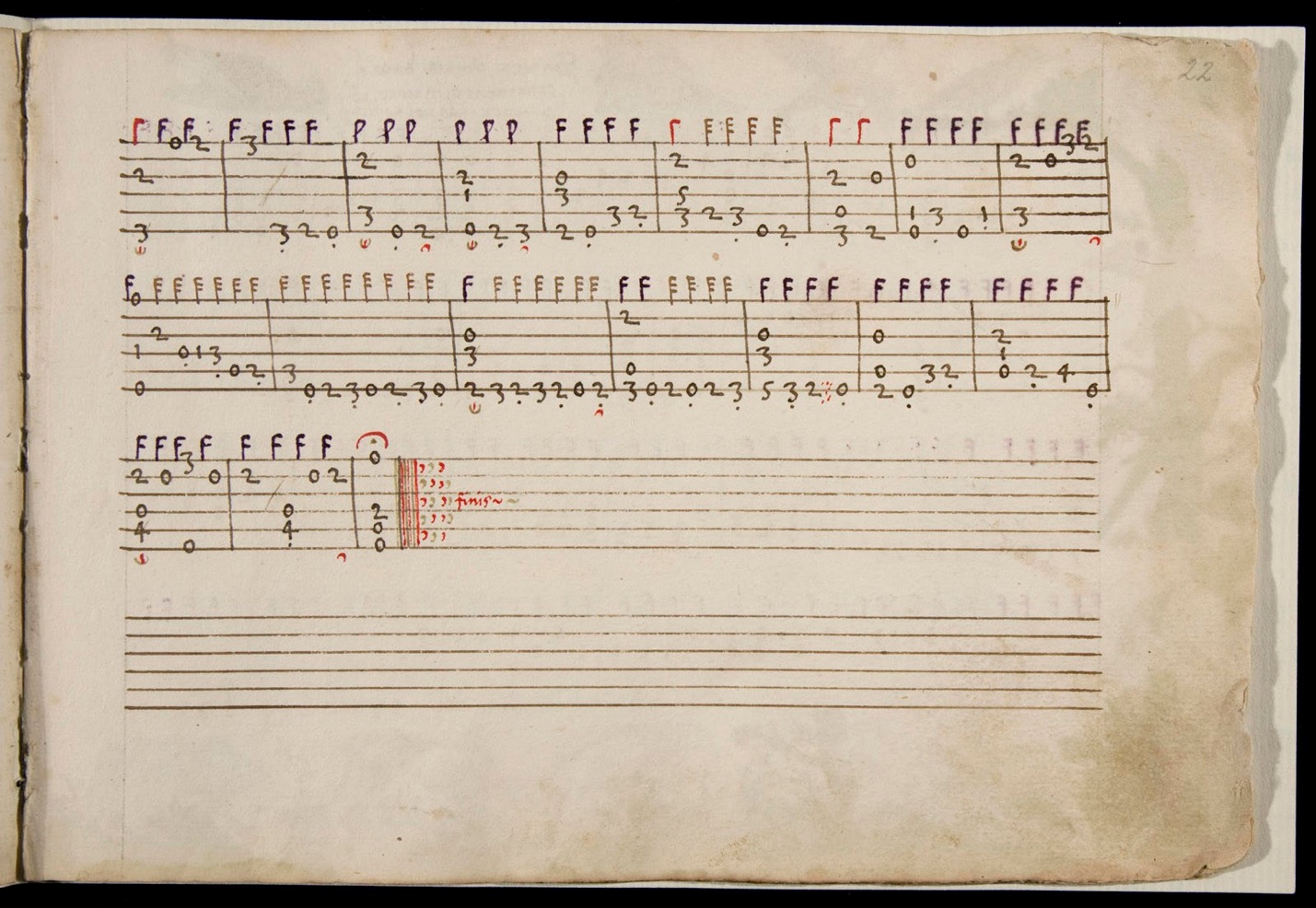



Though little concrete information survives concerning the life of Hayne van Ghizeghem, he appears to have been quite a celebrated chanson composer in his lifetime. As a young person, he entered the service of the Burgundian court as early as 1457, serving as valet de chambre, singing, and playing the lute; in his lament for the 1497 death of Ockeghem, Guillaume Crétin envisions van Ghizeghem playing his lute in heaven. His surviving compositions are all chansons in the courtly fixed form of the rondeau. One of the most popular was his three-voiced rondeau, De tous biens plaine. It survives in a relatively large number of early manuscript copies, it was printed by Ottaviano Petrucci in his Harmoniae Musices Odhecaton, and it enjoyed an extensive later life in "cover" arrangements. As with much of van Ghizeghem's writing, De tous biens plaine places its conventional love song text ("My mistress is formed of every good virtue") in a well-balanced and elegant setting. The melodies of both superius and tenor voices proceed in largely syllabic fashion, with phrases that lucidly explore the characteristic intervals of the mode. The composer's dissonance treatment is quite careful, and cadences are well-prepared. The chanson as written was poised to become an instant classic. Indeed, De tous biens plaine played a profound role in late fifteenth century composition, spawning an astounding number of derivative compositions, with over 50 of them surviving.
